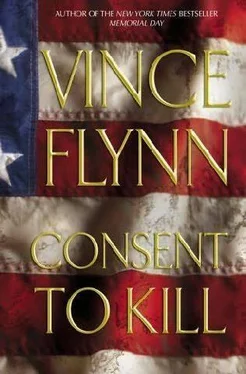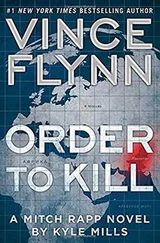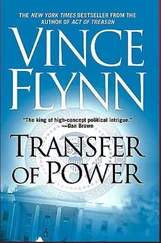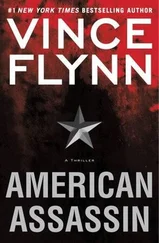He doubted he had anything to fear this afternoon, but discipline was what kept a spy alive. That and the ability to deal with boredom. The truth about spycraft was that ninety-plus percent of it was utterly mundane. It involved a lot of standing around and waiting. Just like he was doing now, but with his new millions spread across a series of banks he felt more secure than he should have, and he allowed his mind to wander.
Abel was wondering why one of the world's most beautiful and dynamic cities gave him a sense of melancholy. He thought perhaps it was because Paris was the heart of France, and he had some time ago come to the conclusion that France was a country whose greatest moments had come and gone.
Their embarrassingly futile effort to defend themselves against the Germans at the start of WWII had left a permanent scar on the country's identity. The tiny country of Finland, after all, had stopped Stalin's Red Army for three months at the onset of the war, while France had barely lasted two weeks against the Nazi blitzkrieg. In the end it took foreign armies to win their own country back for them, and while it was preferable to living under Nazi occupation, their national pride had been dealt a serious blow. This was, after all, the country of Napoleon, who had once dominated all of Europe. In less than a century they had gone from one of the world's preeminent powers to a country incapable of putting up a fight.
The French were a proud people, and Abel reasoned that to protect their collective psyche from the truth, they had decided that leisure and intellectual refinement were more important than economic and military might. Abel could not deny the worth of intellectual and artistic pursuits, but they were nothing without secure borders and a strong economic engine to fund such lofty endeavors.
The government had instituted a thirty-five-hour work week, and two-hour lunches were a coveted tradition. On top of that almost all workers were guaranteed nine weeks of vacation every year. The country was inching closer to socialism with each election cycle, and the disincentive to work was beginning to take its toll. If you can't, or won't, create on your own, the next best thing is to steal what someone else has created. Abel had seen firsthand how the Soviet bloc countries had used industrial espionage to try and keep up with the West. Similarly, the French intelligence services had become notorious for picking the pockets of visiting executives. So much so that many foreign companies had a standing order forbidding their executives from taking laptops or any other crucial data with them while doing business in France.
Abel came to the sad conclusion that he was watching a once-great civilization slide toward the abyss. The masses wanted the state to provide for them in every way, and the politicians who promised the most largesse were the ones who were elected. They in turn gave the people what they wanted, which then placed an ever-increasing burden on the most productive members of society. This was, he supposed, democracy's Achilles' heel. It struck him at that moment that socialism was far more insidious than communism. In East Germany there had been nothing voluntary about communism. It was simply the only option. But the people of France, through their own selfishness, were choosing this road to ruin.
Abel wondered if there was an investment opportunity to be exploited. Possibly a long-range trend in the financial markets? He made a mental note to talk to several of his clients about the possible implications. The dirty work he performed for his clients was extremely lucrative, but it was also inherently dangerous. In light of the advance for the Rapp job, Abel had started to think about shifting his focus to more legitimate work.
Abel looked across the street at the woman and smiled. He was fooling himself. Going legitimate would be boring. Besides, spying was one of the fastest growth industries in the world, and if Abel was to be honest with himself, there was no other professional fraternity that he would rather belong to.
One thing he would like to partake more in, though, was the company of women. The problem was that he was both too busy and too choosy. He liked intelligent women, but not too bookish, beautiful but not gorgeous, confident but not too extroverted, and they absolutely had to be classy in an austere way. He also wanted a woman who could enjoy silence. Talking was overrated, and Abel believed less was almost always more.
The woman he was currently eyeing seemed to fall into many of his favored categories. She was average in height with black wavy hair down to her shoulders, an oval face with a delicate upturned nose, and a clear milky complexion. He wished he could see her eyes, but she was wearing large black sunglasses, the type worn by movie starlets in the sixties that had recently come back in style. She was in designer black from her coat to her form-fitting, spike-heeled suede boots. Her style was fashion-savvy without being ostentatious. It was the perfect form of urban camouflage for Paris in the fall.
Abel was standing off to the side of a newsstand where he had just purchased a copy of the French magazine Nouvel Observateur. He was wearing a dark brown three-piece suit and had a reversible trench coat draped over his left arm. The woman was sitting at an outdoor cafй across the street. Abel had spoken to her only once, and it had been brief. She'd been polite but had asked him immediately for an e-mail address. Abel complied and then waited patiently by his computer for two hours before her e-mail arrived in his in-box. The first thing she wanted to know was how he had heard about her. Not wanting to name names, he gave her a description of Petrov and vaguely referenced the work she and her partner had done for him over the past year. She asked a few more questions that might trip him up, but Abel knew Petrov too well. Once she was satisfied that Abel was serious, she put forth her terms. Her "firm," as she called it, charged a nonrefundable retainer of $25,000 to get things started. For that initial payment they would consider any job transmitted to them via e-mail. If he'd like to conduct business via a dead drop it would cost him $50,000 and a face-to-face sit-down would run him $100,000. All retainers, she reiterated, were nonrefundable. This woman was no socialist.
Negotiating a job like this via e-mail was out of the question. While the dead drop was tempting, there was simply too much on the line. A sit-down was the only prudent way to handle it. Abel wired the money to the offshore account and she gave him a specific list of instructions, which he had followed with only one exception.
Those instructions led him to where he was now-standing next to a newsstand on the Rue du Mont Cenis in the Montmartre neighborhood of Paris. He had come alone, as instructed, and had purchased the magazine she'd specified. She was sitting at the designated cafй, just as she said she would, with her Burberry umbrella saving his seat. She'd been sitting there for fifteen minutes and Abel was enjoying making her wait. That was part of his plan. He would go only so far in letting them set the tone and tempo of this new, and hopefully successful, business relationship. They had $100,000 of his money. They could wait a little bit.
If she got up and left, that would be even better. That way he could follow her and learn a bit more before he set up a second meet. The most dangerous part of this was not the initial meeting, but rather the moment he chose to reveal the target. That was the point of no return. Once Abel told them the target was Rapp they would be locked in. Abel turned the page of his magazine and looked over the top of it at the intriguing woman he was to meet. Five more minutes, he told himself, and if she didn't get up to leave he would go over and proceed as planned.
Читать дальше












